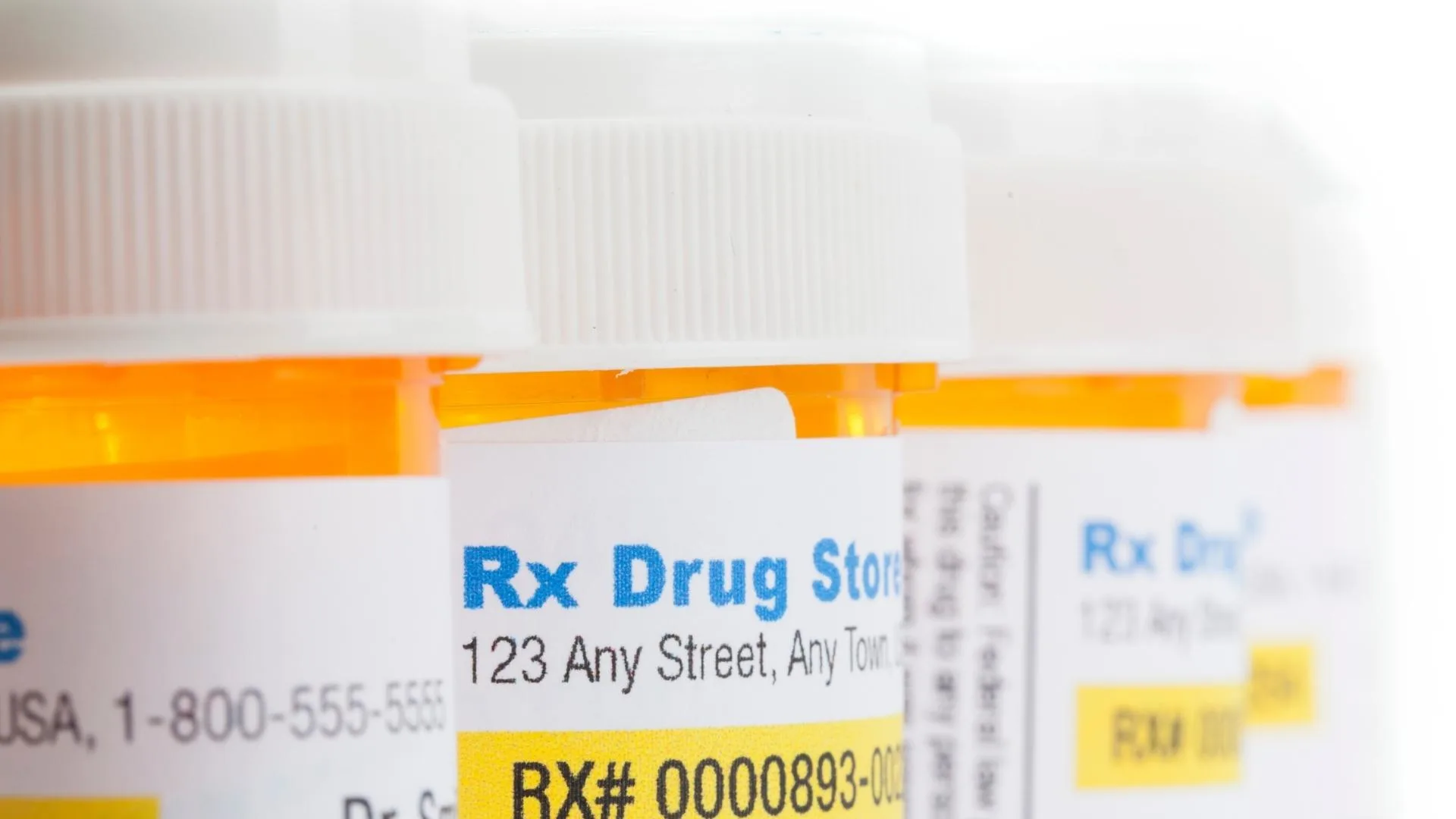Knowing how to get prescriptions when traveling in your RV is very important. Many RVers who take daily medications rely on having them available as needed, so the ability to refill them when you’re not home is key. Still, others may require short-term medication to treat an acute illness, and knowing how to deal with prescriptions on this level is important as well.
So, today we’re looking at the details of how to get prescriptions when you’re on the road.
- 1) How Can I Get a Prescription Filled While Traveling?
-
2)
What Are the Best Ways to Manage Prescriptions While Traveling?
- 2.1) Communicate With Your Doctor Before Beginning Your Travels
- 2.2) Carry an Updated List of All Medications, Dosages, and Expiration Dates
- 2.3) Know Your Meds and Which Require Original Signed Prescriptions
- 2.4) Contact Your Health Insurance Company Before You Travel
- 2.5) Use the Same Pharmacy Chain for Every Medication and Everyone In the Family
- 2.6) Compare Health Insurance CoPay vs Membership Discounts Like GoodRx
- 2.7) Carry All Prescriptions In Their Original Rx Containers
- 2.8) Plan Ahead for Your Refills
- 3) Have You Encountered Any Issues When Filling Prescriptions While Traveling?
How Can I Get a Prescription Filled While Traveling?
Depending on the type of medication you need, getting a prescription filled on the road can be tricky. There are, however, a number of ways to make it easier, so take note of these tips in advance of your travels.
National Pharmacy Chains
If you use a pharmacy that’s part of a national chain, you’re likely to have an easier time getting your prescriptions filled. These chains have pharmacies throughout the country that can access your file via a centralized database and fill/refill your scripts at your physician’s direction.
It’s much easier to deal with a pharmacy away from home if you’re a member of one of these national chains.
For refills, you may be able to call the local pharmacy and ask that your refill be transferred from the pharmacy you use in your home or domicile state.
For refills or new prescriptions, you may also be able to ask the prescribing physician to call in your scripts directly to the pharmacy at your current location.
Have your medication and prescribing information with you when requesting a refill or a new script.
These are the four most popular national pharmacy chains, and the chains with the most locations nationwide. CVS and Walgreens have more locations by far than any other chain.

Using the pharmacy of a national chain helps to ensure consistency of prescriptions and directions, and potentially will offer a more seamless experience nationwide.
Pharmacy Benefit Manager (PBM)
A pharmacy benefits manager (or PBM) is a third-party company that functions as an intermediary between your insurance provider and various pharmaceutical manufacturers. PBMs can process claims, create formularies and pharmacy networks, negotiate rebates, review drug use, and can sometimes manage mail-order specialty pharmacies.
At last count, there were 66 PBM companies in the United States. The three largest control roughly 89% of the market, though, serving 270 million Americans across the U.S.
- ExpressScripts – ExpressScripts is an independent, publicly-traded company
- CVSCaremark – CVSCaremark is the pharmacy segment of CVS Health and also a subsidiary of the CVS drugstore chain
- OptumRx – OptumRx is the pharmacy service segment of UnitedHealth Group Insurance.
Your PBM may have a protocol that is not only necessary to follow, but may also make your life easier, such as with a smartphone app or an online portal. BEFORE you travel is the best time to find out what will benefit you the most, and what is required by your insurance company.
Telehealth
Telehealth allows you to connect with medical professionals from wherever you are. Whether via a phone call, or a video chat, you’ll just want to be sure that either the cellular signal or your RV internet keeps you connected for your appointment!
Many health insurance companies provide this service free of charge for common ailments. Not only is this a convenient way to talk with a medical professional, but they may be able to call in a script if warranted.

Telehealth allows you to connect with medical professionals from wherever you are in your travels.
Urgent Care and Other Walk-In Clinics
Urgent care centers and other walk-in clinics are often a convenient way to be seen by a physician when you’re away from home. They deal with common ailments as well as low-level emergencies or flair-ups of chronic conditions. The physicians associated with walk-in clinics can call in scripts locally for you, though it’s still advantageous to be a part of a larger network.
Be sure to check with your health insurance company to ask if your urgent care visits are covered. Some may be out-of-network or, depending on your plan, they may not be covered at all.
It’s also important to note that urgent care centers that are connected to hospitals and medical centers can be far more expensive than independent clinics. Again, check with your health insurance company BEFORE you travel, to have a plan in case you need to be seen by a physician.
What Are the Best Ways to Manage Prescriptions While Traveling?
Here are a few things you can do to ensure that you have a better experience managing prescriptions while traveling.
Communicate With Your Doctor Before Beginning Your Travels
Before you travel, be sure to communicate with your physician. Explain where you’ll be going (in general) and how long you’ll be away. Ask for the best practice for refilling scripts and for dealing with any emergencies (including new scripts) on the road.

Connect with your personal physician before you travel to get your prescriptions in order and to gather advice regarding any medical issues you may have on the road.
Carry an Updated List of All Medications, Dosages, and Expiration Dates
This is very important. ALWAYS carry an updated list of your medications, dosages, schedules, expirations dates, and what each med treats. This should be kept in your wallet or purse, and should be made known to and available to anyone traveling with you.
In the event of an emergency, an EMT and/or emergency nurses & physicians will ask for a list of prescriptions currently being taken by the person who’s been injured or taken ill. This is CRITICAL information. And it’s not easy to recall in an emergency situation. The ability to hand a list of medications, dosages, schedules, etc. is invaluable. Make a couple of copies. Laminate them with a little clear contact paper on each side, and keep one in your wallet or purse and another in the RV.
Know Your Meds and Which Require Original Signed Prescriptions
Some medications require original, signed prescriptions from the prescribing physician. This is because some narcotic medications are restricted by law.
Prescription meds are regulated by the Controlled Substances Act. There’s a mountain of regulations, but what you need to know is that Schedule II controlled substances (these are generally addictive narcotic pain killers and some psychiatric medications) can’t be refilled. The quantity prescribed is limited and they require an original written prescription signed by the prescribing physician.
Under certain conditions, federal regulations allow the prescribing physician to prescribe up to a 90-day supply using separate prescriptions. But each script has to be dated with the earliest date it can be filled. The timing can’t be altered by a pharmacy or any other physician. So, if you are taking a Schedule II drug, you need to speak with your physician about this and make a very specific plan for how your medications will be dispensed as you travel.
Some states will only allow scripts of certain Schedule II drugs for 3-7 days, or for 14 days, depending on the state. For this reason, you really need to connect with your prescribing physician to make a clearly delineated plan with all federal and state restrictions in mind.
Contact Your Health Insurance Company Before You Travel
Always contact your health insurance company before you travel. Ask about medication refills, the proper protocol for emergencies, whether urgent care/walk-in clinics are covered, and anything else you’d like to know. Having the information about their procedures/requirements, in advance, will mean you’re not struggling to understand it all in an emergency.
Use the Same Pharmacy Chain for Every Medication and Everyone In the Family

Using the same pharmacy for everyone in your family can help to ensure a more seamless experience should anyone require medication while you’re traveling.
When you’re traveling, it’s helpful if you and everyone in your family are affiliated with the same pharmacy. It’s also helpful if you use one chain for all of your medications. (Most people do, but not everyone does, and it could prove to be very helpful on the road.)
Compare Health Insurance CoPay vs Membership Discounts Like GoodRx
When you’re prescribed medication, be sure to check your health insurance company’s copay vs membership discounts like GoodRx. Very frequently, a membership like GoodRx (or another membership) will offer the same medication far cheaper than your insurance company’s copay. You can save a substantial amount of money by price comparing in this way.
GoodRx has an app that allows you to compare prices across companies and memberships and may be worth considering. And it’s free!
Carry All Prescriptions In Their Original Rx Containers
In some states, you need to carry all prescription medications in their original labeled containers. Surely you can dispense your weekly meds in a 7-day pill box or some other organizational container, but the prescription as a whole should be carried in its original container, as prescribed and delivered.

Carry your prescriptions in their original containers. It’s fine to organize your weekly doses in a pill organizer, but carry the remainder of your prescriptions in their original pharmacy containers.
Plan Ahead for Your Refills
Be sure to plan ahead for refills of prescription medications. In many instances, you can plan ahead for the duration of your trip. But always be clear on when your current prescription will be running out, and start dealing with a refill situation EARLY. Don’t wait until you’ve taken your last dose to start the refill process.
Give yourself time to arrange transfers, refills, etc., and plenty of time to make sure you won’t miss a dose (or several) if several days are required to deal with a particular situation.
Have You Encountered Any Issues When Filling Prescriptions While Traveling?
Using the comments section below, let us know if you’ve encountered issues related to prescription medications when traveling. Your story may be helpful in preventing another traveler from enduring the same issues.
Geek Out With Us Every Week
Join our newsletter to learn about all things RV-related. Every week we offer free tips, tricks, product reviews, and more to our online community of RVers. So, whether this is your first time on the road or you’re a seasoned expert, we’d love for you to geek out with us!


Steven Gunden
Friday 28th of April 2023
We use Amazon Pharmacy as we travel full time. Prescriptions are delivered within 2 days and prices are excellent. They use third party services (we use WellCare) and also provide pricing similar to Good RX.
TheRVgeeks
Saturday 29th of April 2023
Thanks for sharing that, Steven... we weren't even aware that Amazon offered pharmacy services! Learn something new every day!
RICH
Friday 28th of April 2023
This article regarding getting refills from a national drug chain in the US applies only to US residents. Canadians traveling in the US are advised to bring enough supply for your full stay. US drug stores are unlikely to fill prescriptions from a Canadian doctor. The prescription must be written by a doctor licensed in the US. My wife just had to have a prescription written by a Nurse Practitioner in Mesa, AZ - $99, before the drug department of Fry's would fill the prescription. She submitted the NP bill to our insurance company and was told it was not covered. If we had gone to a doctor, for a higher cost, it would have been covered. Normally she brings a 5 or 6 month supply. However the dosage needed to be changed requiring a new prescription during our stay.
Prepare in advance is the best solution.
TheRVgeeks
Saturday 29th of April 2023
Oh wow, Rich. Thanks for providing the details of your experience. Sorry to hear your travel medical wouldn't cover the nurse practitioner!
We just check out the Canadian Snowbird Association and learned of Pillway... a virtual pharmacy that can mail prescriptions to you on your travels (if you live in Ontario, Alberta, or BC, at least). You may want to check them out for the future: https://www.snowbirdadvisor.ca/member-benefits/pillway
Jerry
Friday 28th of April 2023
We are Canadian and sometimes travel for 6 months at a time. Our doctor/insurance and pharmacy have been great and advance us 6 months of prescriptions when we ask.
I am wondering if there is an American Pharmacy chain that would honour our prescriptions, so we could refill when we are travelling in the USA?
TheRVgeeks
Saturday 29th of April 2023
Not that we know of, Jerry. American pharmacies can only fill prescriptions written by doctors licensed in the US. So they wouldn't be able to handle filling your Canadian prescriptions. An alternative is to look for a Canadian pharmacy in your area at home that can mail prescriptions once filled to either you in the States... or to a family member it friend in Canada who could then forward them to you where you are down south.
Or if you live in Ontario, Alberta, or BC... check out Pillway: https://www.snowbirdadvisor.ca/member-benefits/pillway. They are a virtual pharmacy and can forward you prescription refills while you're traveling.
Dustin
Sunday 2nd of April 2023
Doctors are saying they can not do more than 3 months at a time and can not do telehealth if I am out of state. Which means they can't prescribe meds. I will be driving full time.
Kim
Wednesday 21st of December 2022
I’m having trouble getting my prescription for Adderall XR in California. The pharmacy said that they can’t accept controlled substance prescriptions from doctors in other states. My pcp and all my medical team is in Alabama.